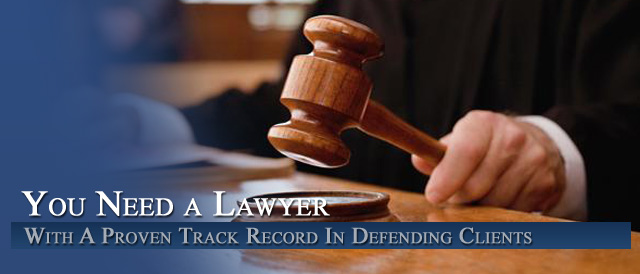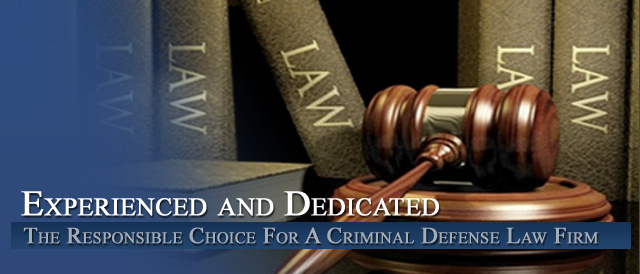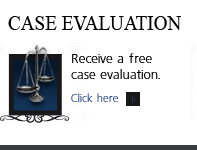




Attempt an Early Understanding with Your Attorney
Whether you decide to retain my services or those of another lawyer, you should attempt an early understanding of the relationship between you and your lawyer.
Many people believe that after they have hired a lawyer, the lawyer will do everything necessary to handle their legal matter. In reality, hiring a lawyer is just the first step in creating a team. Sometimes your legal team will consist of just you and the lawyer. Sometimes the team will include others such as legal assistants, accountants, consulting experts, court reporters and the like.
But no matter how many people are on the team, each member, every one, including you, has certain responsibilities to fulfill to ensure that the legal matter will be handled as smoothly and successfully as possible.
1. What will the lawyer be responsible for?
The lawyer expects to use his or her specialized legal knowledge and skill to advise you on the different courses of action available to you and the possible consequences of each course of action so that you can make the best decisions about how your case or legal matter should proceed. The lawyer does not expect to make major decisions about your matter–that is your responsibility.
In some instances the lawyer will expect to use his or her judgment about what to do and will not necessarily ask you for input or advice. Say, for example, that you have decided to take your accident case to trial. The lawyer will probably decide how to question the various witnesses and introduce items of evidence without consulting with you.
2. What will I be responsible for?
Your lawyer will:
- Expect you to be truthful and complete about the facts of your situation. Holding back information can prevent the lawyer from giving you the best advice.
- Want to know how to maintain regular contact with you. You would be surprised by the number of clients who move or change telephone numbers and forget to tell their lawyers.
- Expect you to make reasonable adjustments to your schedule to meet with the lawyer or attend legal proceedings, such as depositions and trials, as necessary.
- Expect you to pay your bills promptly, both for legal fees and for costs.
Your lawyer may also ask you to assist by locating documents and people who are important to your case. Of course, any other assistance you can provide such as word processing, organizing documents and other similar services will reduce the fees and costs that you would otherwise have to pay the lawyer.
Of course, this list is not exhaustive, your job on your legal team will depend on the nature of your legal matter and the expectations of your particular lawyer.
3. How will I know what my lawyer expects of me?
At one of your first meetings with your lawyer, plan to discuss and reach an agreement about the following:
- Your goals and what you want accomplished.
- What the lawyer expects to do to help you achieve your goals.
- How fees and costs will be charged, and how you will be expected to pay for them.
- How the lawyer will keep you informed about the status of your case, whether by regular telephone calls, meetings or letters.
- Who else in the lawyer’s office will be involved with your case–other lawyers, paralegals, legal assistants and secretaries.
- How the lawyer wants you to keep the office informed about developments in your case by telephone, in person or in writing.
- What is the office policy about returning your telephone calls and letters, and how will you be charged for these services?
Some lawyers charge a minimum fee for returning calls while others do not charge their clients. You should be certain that you understand what your lawyer’s policies are, and that you are comfortable with them.
4. What if the lawyer won’t discuss his/her policies?
It is probably a good idea to interview at least three lawyers before making a decision on who to hire. Don’t hire a lawyer who will not discuss how he or she works, or one who expects to handle your matter in a way with which you are uncomfortable. But if several lawyers tell you the same things, chances are that you may have to adjust your expectations.
After you have hired a lawyer to work on a legal matter for you, you are entitled to be kept informed about what is going on. You have the right to information about the work that is being done and the progress of your matter.
5. What do I need to do to have a successful lawyer/client team?
The answer to this is simple and straightforward. Be sure that you:
- Have the same goals as your lawyer.
- Understand and are comfortable with the lawyer’s working style . Be especially certain that you have a clear pictur e of the expected timetable of your case when you can expect significant developments and when and how often the lawyer intends to contact you.
- Provide the lawyer with the information and documents necessary to understand your case.
- Understand and agree with the lawyer’s billing practices.
- Have questions or concerns about your legal matter, you express them to the lawyer and listen to the responses.
6. The Initial Meeting
After a potential client has made an appointment with an attorney, the client should prepare for the first meeting. The client should gather together all documents and evidence relating to the case and bring them to the first meeting. It may be helpful to both the client and the attorney if the client brings to the meeting a written, chronological account of the matter in dispute. A client may also compose a set of questions designed to help determine whether the attorney is right for the job. The following is a list of helpful questions that a person hiring an attorney may consider asking:
- How much experience has the attorney had in this sort of case?
- Will anybody help the attorney work on the case, and if so, who? Will the lawyer you hire be the one who represents you every time you go to court?
- How long will it take for the case to be resolved?
- If the client is not satisfied with a settlement offer, can she insist on going to court?
- How often will client and attorney communicate about the case?
- Can the client call and expect a reasonably prompt response?
- How can the client contact the attorney in case of an emergency?
- Who can the client talk to if the attorney is unavailable?
- How much will the case cost?
- What can the client do to help the case?
A client may think that certain elements of the attorney-client relationship are more important than others. For people with less money, attorney fees may be a deciding factor. Clients who do not need to consider money as the primary factor may wish to find an attorney who has the best reputation in the particular field of law. Other clients may place a greater emphasis on personal rapport with the attorney.
Still other clients may seek a certain type of attorney based on the nature of the client’s desired representation. For example, if a client seeks an attorney to take to court a bitterly contested personal injury case, he may seek an aggressive, high-profile attorney who specializes in trial work. If a client needs an attorney to mediate a dispute or to represent her in arbitration, she may seek an attorney who is an adept negotiator.
A client simply may need basic information about a particular law or an area of law. Basic legal information may be found in pamphlets and booklets distributed by state bar associations. Law schools occasionally offer legal services, and law libraries typically have ample legal information for the public. A layperson may be able to find answers to simple questions in a law library, but researching a complex issue, or the law on an entire case, is best left to the expertise of a professional.
Some lawyers may give small amounts of information without charge. Information is different from advice. Advice is legal information given to a person along with a recommended course of action. When an attorney gives legal advice, the attorney may be liable for malpractice if the advice is erroneous. Attorneys are hesitant to give legal advice, and expose themselves to liability, without charging a fee.
Other Articles of Interest:
- 021. COLORADO CRIMINAL CODE – WRONGS TO AT-RISK ADULTS AND AT-RISK JUVENILES
- Community Corrections
- Developing A Criminal Case Defense Theory To Colorado Criminal Charges – Winning At Trial
- Colorado Grand Jury Criminal Investigations – A Lawyer Provides Some Answers
- Liability as an Accessory












